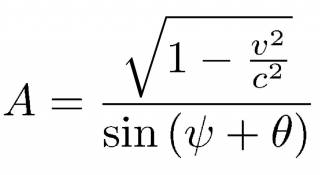How to Become A Game Designer- Part 1
By gamer_152 66 Comments
Getting the Information You Need
It’s no secret that a lot of people out there want to be game designers, in fact many people consider game designer their dream job. It’s probable a number of you reading this right now wish to achieve the same goal, or perhaps you’re just interested in knowing more about what makes a game designer. However, whether you’re trying to be the next Sid Meier, or you’re just an inquisitive games enthusiast curious about how you make a video game tick, there’s a noticeable drought of information on the subject.
Video game development in general is a rather specific area so you usually have to dig a little to find the information you need, but when it comes to looking for information on how to design a game the internet and libraries seem to be somewhat devoid of genuinely useful information. Perhaps one explanation for this is that there’s more extensive information on other skills involved in games development (such as programming and 3D modelling) because they carry over to vocations outside the industry, but I think the problem goes much deeper than that.

In his foreword to Raph Koster’s ‘A Theory of Fun for Game Design’ Will Wright explains that ”There are very few people working in the games industry today who understand games well enough to communicate what they know and how they know it”, however he also goes on to say that communication lines between the industry and academics are now slowly forming. In one sense this is somewhat exciting news, it’s the promise of a future to come where every budding game designer will be able to pick up a book or get onto a PC and find what they need to know to start becoming the creator they want to be. In another sense this news is rather disappointing, it highlights the fact that a lot of the information about game design that currently exists within the industry will not be directly inherited by those of us still young enough to become game designers, and that’s a problem.
Despite the current scarcity of information on the topic, I believe that if you truly have the drive and conviction to become a game designer in this day and age, you can achieve great things within the world of design. I’m no expert myself but I’ve studied game design both as part of my formal education and in my own time, and I hope to at least shed a little light on the darkened path of this coveted profession. Be aware that throughout the following series of blog posts I will be addressing you, the reader as the designer. If you’re not one of the would-be John Romeros out there don’t worry, just sit back and we’ll pretend for a little while.
Misconceptions
Before I get into what becoming a game designer involves I feel it necessary to dispel some of the common myths about game design. I’m sure most of you here on Giant Bomb won’t believe every fairy story and tall tale about game design you’ve heard, but when it comes to the practice of game design and the steps necessary to become a game designer, the general population is clouded with a lot of assumptions about the practise which just aren’t true. For the sake of clarity let’s explore what game design isn’t.
Knowing a Lot About Video Games Doesn’t Make You a Game Designer
Okay, I think most of you guys are industry-savvy enough to know this one, but just to be clear about this, knowledge of video games as a player and knowledge of video games as a designer are two vastly different things. Even if you can critique a video game with cutting-edge expertise, critics and creators take the form of different professions in every other entertainment industry and the same applies to video games.
Basic Concepts Aren’t Game Designs
I’ve seen many situations where people who’ve considered themselves would-be game designers have presented their base ideas for games as though they’d either designed a game, or at least reached a significant milestone towards designing a game. A strong basic concept can provide a good jumping-off point but they’re just a small part of the gargantuan mass of ideas that make up a game.
Being A Game Designer Does Not Mean You’re The Writer
Just as I’ve seen many amateurs pass off basic ideas as substantial pieces of game design, I’ve seen many people present part of the plot for their game as part of the game design. Know that you will have an impact on the narrative of the games you work on but unless you are in some kind of indie style designer-and-writer role you aren’t going to be the guy (or gal) that pens the story.
Being A Game Designer Does Not Mean You’re The Boss
As a game designer you’ll be coming up with a whole lot of ideas and you’ll have to convey those ideas to other members of the development team you’re working with, but that doesn’t mean you’ll be the boss. It’s not outside the realms of plausibility that you could end up organising a group of people in your profession, but don’t confuse your job with that of the studio management.
Game Design Isn’t Easy

One of the things which it really irritates me to see on online forums is people calling games developers lazy. Development teams may be underfunded or have limiting time constraints on them but one thing professional development teams almost never are is lazy, and that includes the game designers out there. Game designer is one of the most prized jobs in one of the most competitive industries in existence, and becoming a designer means trying to rise to the very top of a massive group of people. There will be individuals out there who are willing to work day and night to become professional game designers and only if you can surpass their level of skill will you have a chance at becoming one yourself. Game design doesn’t start off easy and as you get closer and closer to becoming part of the industry, things are only going to get harder. I think it’s arguable that you have to be a bit of a masochist to throw yourself into such a demanding profession, because it is an extremely difficult undertaking.
Good Game Designers Aren’t Guaranteed Jobs
So I think we’ve established that the competition to become a game designer isn’t an easy one. Going after any job in the games industry is going to be a major gamble and this might be truer with game designer than any other vocation in the industry. With the number of people after the position it only stands to reason that for every designer hired a number of designers with roughly equivalent skills aren’t going to get to see their dream made a reality. The sad truth is that you could try your absolute best your entire life to make it as a game designer and never get to be one. If you want to be a game designer you have to face up to this fact. If even after reading this you are still determined as ever to create games then you’re on the right path.
Most Would Probably Find Game Design Boring

A lot of people think game design is all about dreaming up imaginary worlds and designing cool new weapons and enemies. Yes, this is a part of the job, but game design is also a whole lot more than that. Just as the programmer spends more time staring at screens of code than he does the game itself, the designer spends more time dealing with the grisly innards of the game than the kinds of things a nine year old boy dreams about creating.
You’ll spend a lot of time repeatedly studying the same things from many different perspectives, thinking about abstract concepts, writing formal documents and coming up with the systems of maths and logic that run your world. If these don’t all sound like things that are fun to you then perhaps game design isn’t really what you want to do. For the large majority of the time the games you deal with will be far from the shiny finished products you see on store shelves. You’ll be dealing with aesthetically dreary and technically broken and unfinished games for hours on end, but for the regular game designer this is not a bother as they can see past the gleaming surface to the guts and gears under the hood.
End of Part 1
Thanks for reading people. All questions and constructive feedback is welcome. Good luck, have Batman.
-Gamer_152